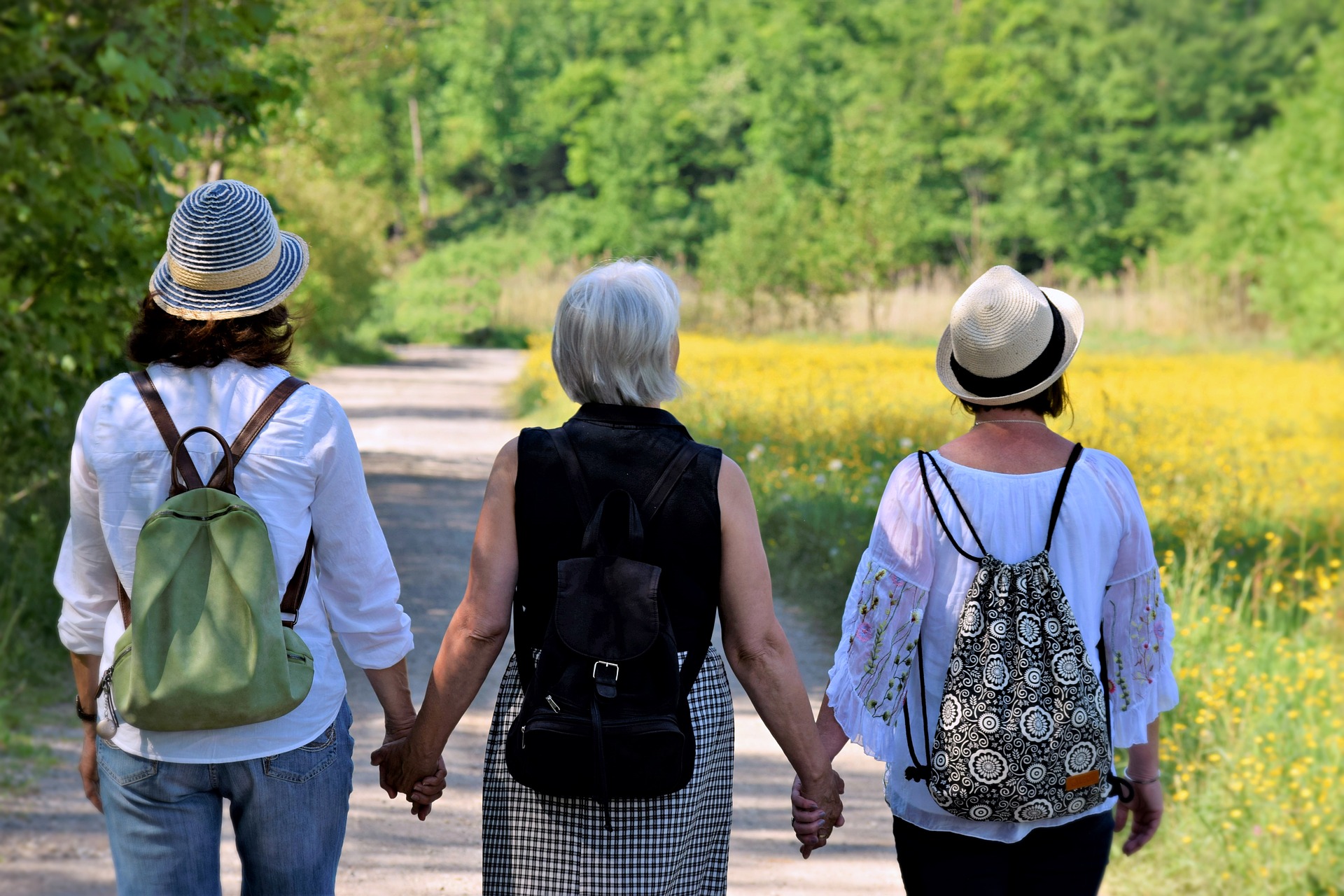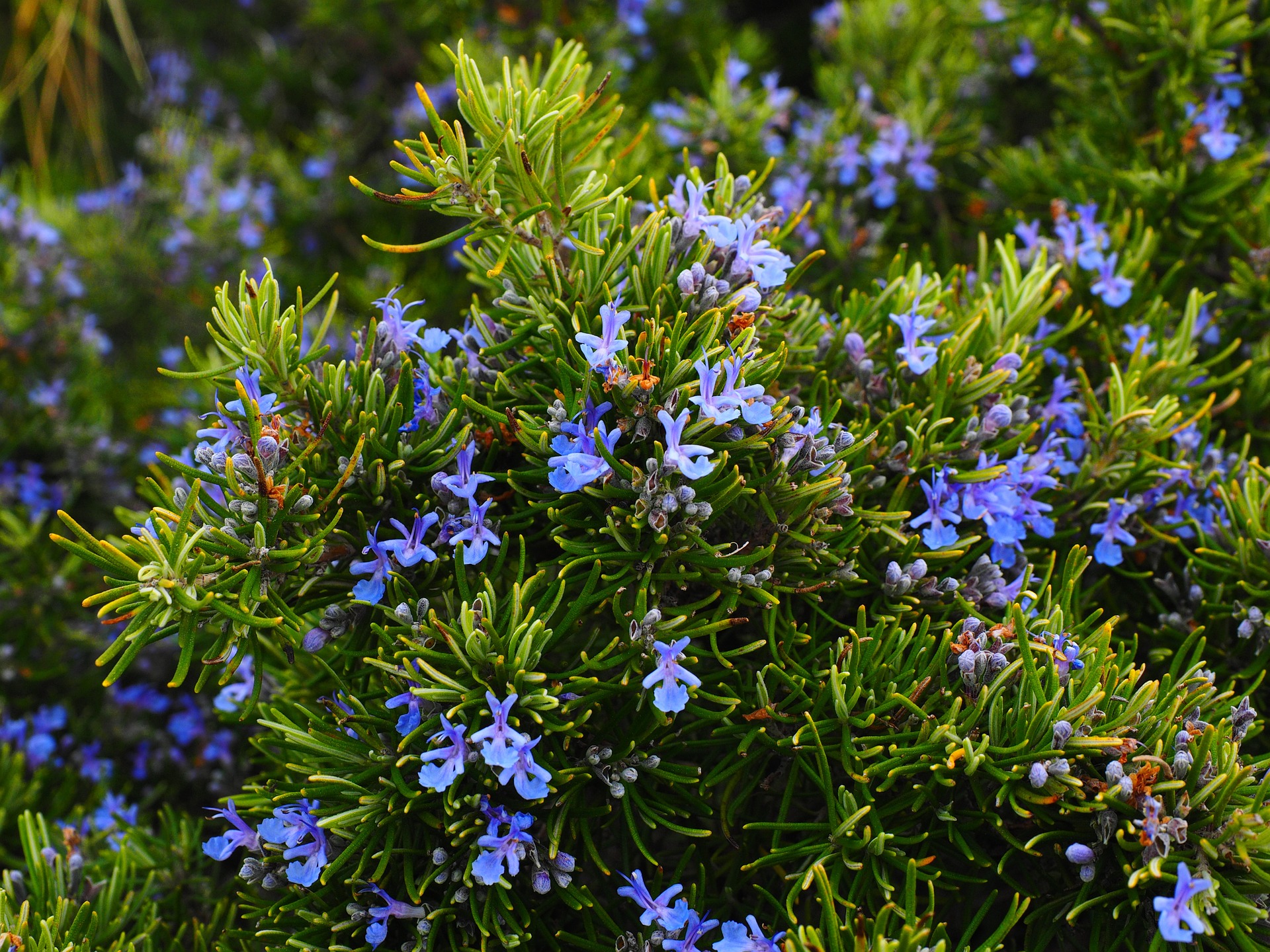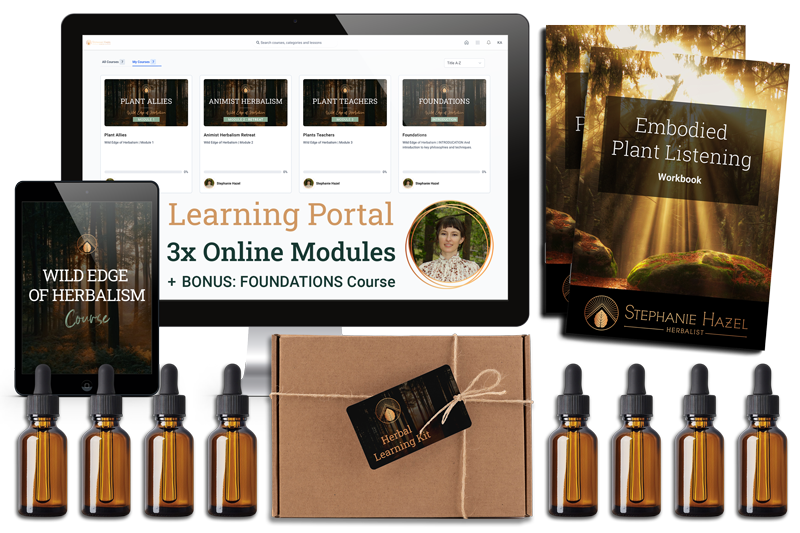
Boosting brain function with herbs
December 1, 2018
How herbs can help women’s libido
December 1, 2018Menopause is a time of profound changes in both a woman’s body and her social role. It’s a distressing experience for many women, but it is also an opportunity to embrace transformation.
To flourish during this change, a woman needs both emotional support and physical support with herbs and diet.
We must understand that menopause is not a disease. Nonetheless, the rapid hormonal changes can cause uncomfortable symptoms in the body as we adjust to new patterns, and previously buried dysfunctions come to the surface.
The most common symptoms are:
Hot Flushes (or flashes if you are American): 70%
Depression: 40%
Sweating: 20%
Insomnia: 30%
Fatigue: 40%
By bringing our bodies back into balance, and by supporting a slow and steady change in hormone production, rather than rapid fluctuations, herbs can alleviate uncomfortable side-effects of menopause, protect our health into the future, and nourish our hearts as we step into this powerful new phase of womanhood.
Maca – a changing woman’s best friend.
Strengthen the body – increase desire – boost mood – reduce night sweats.
Maca is a superfood from the Andes mountains of South America that is showing amazing results with a wide range of menopausal symptoms.
Two 2015 clinical studies (Stonjanovshka et al) – one in Australia and one in China, found that daily use of maca reduced depression and anxiety in menopausal women, as well as lowering the raised blood pressure many women experience. A large, double-blind 2006 (Meissener et al) study showed daily maca with meals significantly reduced night sweats, hot flushes and fatigue.
Maca also helps women get their mojo back: a further study looking at menopause and sexual function found that daily maca substantially increased sexual desire and activity (Brooks et al 2008).
Despite being so helpful for menopausal symptoms, maca does not have a direct effect on hormonal levels. Rather, as a general strengthening tonic, it supports the body to adapt positively to the changes and builds energy reserves.
Motherwort – The nurturing herb for emotional difficulties
Nourish the heart – reduce anxiety and restlessness – tonify the sexual organs
This women’s herb focuses on the special relationship between the heart and the womb (Holmes, 1989:443). During menopause it is a fantastic herb for the emotional tension, anxiety and insomnia that can arise as we face this change of body and self.
As well as emotionally supporting the heart it also helps the physical heart: reducing palpitations, chest pain and high blood pressure (Shikov et al, 2011), and the physical womb: keeping vaginal tissue strong and healthy.
Sage – the secret for battling hot flushes and sweats
Regulate body temperature – reduce sweating – improve brain function
This common kitchen herb is one of the jewels of traditional western herbalism. During the 12th century, it was the central ingredient in dozens of longevity medicines and elixirs of life, and has been called the Ginseng of Europe (Holmes, 1989). It strengthens the nerves, the brain and has a deeply restorative effect on the hormonal and reproductive system.
It is especially indicated for excess sweating, which has been considered its herbal super power for centuries.
Modern research also shows that low doses of sage tea also has a positive effect on anxiety, mood and cognitive performance during stressful situations (Kennedy, et al 2006).
How to use the herbs
Menopause is a long journey – herbal treatment also needs to be maintained as a long-term strategy throughout. Often, women find that making herbs a part of their daily life for up to two years is necessary to properly support their health as they adjust to new hormonal patters (Mills & Bone, 2000:245).
Often, 4-8 weeks of continual treatment is required to really notice the changes.
To find the perfect formula for your unique body’s needs, we recommend that you see a qualified herbalist.
The Hidden Potential in Menopause.
During this time, a woman has the potential to step into a different role in society and in her family: from mother and lover, she can become the wise leader of community, and also put down caring for others to focus more strongly on her personal fulfilment.
How can women be supported emotionally through this time? A good counsellor is always an important ally during times of change, but a support group of other women also going through menopause where you can speak vulnerably and openly about the challenges, the emotions and the new opportunities is invaluable.
Reclaiming the elder as a figure of powerful femininity is vital for all women transitioning through menopause.
References:
Stonjanovshka, L., Law, C,., Lai, B., Chung, T., Nelson, K., Day, S., Apostolopoulos, V., & Haines, C. (2015). Maca reduces blood pressure and depression in a pilot study in postmenopausal women. Climacteric: 18(69-78).
Kennedy, D., Pace, S., Haskell, C., Okello, E., Milne, A., & Scholey, A. (2006). Effects of Cholinesterase Inhibiting Sage (Salvia officinalis) on Mood, Anxiety and Performance on a Psychological Stressor Battery. Neuropsychopharmacology, 31(4), 845-52.
Brooks, N., Wilcox, G., Walker, K., Ashton, J., Cox, M., Stojanovska, L. (2008). Beneficial effects of Lepidium meyenii (Maca) on psychological symptoms and measures of sexual dysfunction in postmenopausal women are not related to estrogen or androgen content. Menopause, vol. 15 no. 6, pp. 1157-1162,
Meissner HO, et al. (2006). Hormone-Balancing Effect of Pre-Gelatinized Organic Maca (Lepidium peruvianum chacon): Physiological and Symptomatic responses of early-postmenopausal women to standardized doses of maca in double blind, ramdomized, placebo-controlled, multi-centre clinical study, International Journal of Biomedical Science,; 360–374.
Holmes, P. 1989. The Energetics of Western Herbs: Integrating Western and Oriental Herbal Medicine Traditions. Artemis Press: Boulder.
Shikov, A., Pozharitskaya O., Makarov, V., Demchenko, D., & Shikh, E. (2011). Effect of Leonurus cardiaca oil extract in patients with arterial hypertension accompanied by anxiety and sleep disorders. Phytotherapy Research 25(4):540-543.







